Your location can be tracked on digital devices, such as smartphones or computers, in two main ways: through your IP address and your GPS location. Both are ways to determine your area, but they work differently, serve different purposes, and their accuracy can vary. In this review, we’ll break down what an IP address GPS location are, how each functions, and how they compare. You’ll discover the key differences and similarities between IP-based and GPS-based tracking, helping you understand which one has a greater impact on your privacy. Finally, suppose you’re concerned about being tracked or simply want to access geo-restricted content. In that case, we’ll show you safe and effective ways to spoof both, using proxies for IP addresses and a tool for GPS location changes. It will guide you every step of the way.
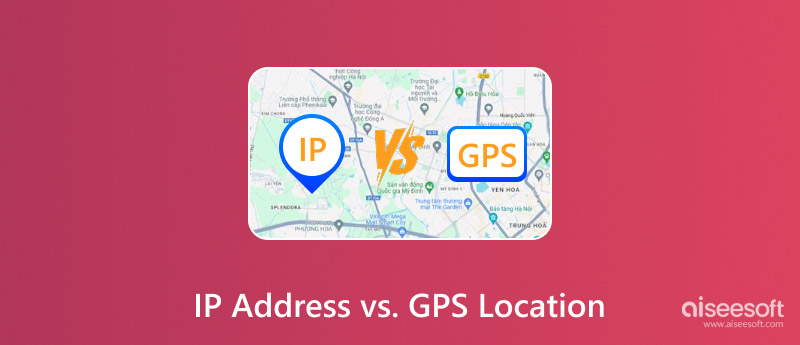
Two key technologies, IP address and GPS location, are the first steps towards comprehending how your device shares or tracks your location.
Every gadget connected to the internet is assigned a special number, known as an IP (Internet Protocol) address, which enables devices to communicate with servers and other devices.
There are two types:
• IPv4: The most common, totalling to four series of numbers (i.e., 192.168.1.1).
• IPv6: The newer, more complex alphanumeric version, created to handle the staggering growth in internet-enabled devices.
IP addresses help determine your approximate geographic location based on the internet connection you’re using, which is usually linked to your ISP’s server location. However, this method is less accurate compared to GPS. People often search for ways to translate an IP address to GPS coordinates, but it’s important to note that IP-based geolocation is estimated and not as precise as satellite tracking.
GPS (Global Positioning System) location is based on satellite signals that your smartphone or GPS-enabled device receives. It calculates your exact position on Earth with remarkable precision. Unlike IP-based location, GPS can pinpoint your location down to a few meters.
There are three primary types of GPS tracking: It depends only on satellite signals.
• GPS that operates independently:
• For quicker and more accurate positioning, assisted GPS (A-GPS) combines network data with satellite signals.
• Hybrid Positioning: Combines Wi-Fi, cellular networks, and GPS data to improve accuracy indoors and outdoors.
To conclude, while your IP address to GPS coordinates might give you a rough idea, true GPS technology provides real-time and precise tracking, making it a source of accuracy and reliability for navigation, apps, and services that depend on accurate data.
While IP Addresses and GPS are different methods for pinpointing a device's location, together they are used in the field of geolocation technology. Recognizing the differences and similarities will provide clarification for why one might be more useful than the other in certain cases.
Similarities
• Used for Location Detection: Both GPS and IP addresses can help determine a device's location.
• Support for Online Services: Apps and websites utilize either GPS or IP data (or both) to provide region-specific content or security measures.
• Can Be Manipulated (Spoofed): With the proper tools, both GPS and IP-based locations can be altered or concealed.
Differences
| Feature | GPS Location | IP Address Location |
| Accuracy | Highly accurate (1–10 meters) | Rough estimate (can be off by several km) |
| Based On | Satellite signals | Network and ISP data |
| Works Offline | Yes (with preloaded maps) | No |
| Primary Use | Navigation, fitness, real-time location | Region-locking, digital identity, IP-based restrictions |
| Can Be Dynamic? | Fixed to device hardware | Often changes depending on network |
When it comes to real-time and accurate tracking, GPS is the clear champion. It is great for navigation apps, real-time delivery tracking, and location-dependent services. At the same time, IP-based location tracking is useful for more general geolocation purposes, such as serving region-specific web content or enabling even login verification. In short, GPS vs IPs comes down to precision versus practicality. GPS offers pinpoint accuracy but depends on satellite visibility, whereas IP-based location services work in the background over the internet with less precision. Depending on your need, security, privacy, or functionality, knowing when to use each makes all the difference.
Many sources indicate that users of all types are naturally seeking methods to spoof their IP addresses and GPS locations, whether due to privacy concerns or a desire to circumvent region locking. Spoofing is a safe option for accessing content that may be otherwise restricted by region, preventing applications from tracking your location, or testing location services. Simply put, there are two ways to mock your location: using a proxy server to spoof your IP address, and employing GPS spoofing software, such as Aiseesoft AnyCoord, to fake your physical location. Based on the potential of GPS IP location tracker monitoring, these options provide you with privacy and control over your device data.
An intermediary between you and the internet is a proxy server. When you use a proxy, your real IP address is masked, and the websites or apps see the IP address of the proxy instead. It makes proxies useful for bypassing geo-restrictions, maintaining your privacy, or testing region-specific content.
Here’s how to use a proxy to spoof your IP address
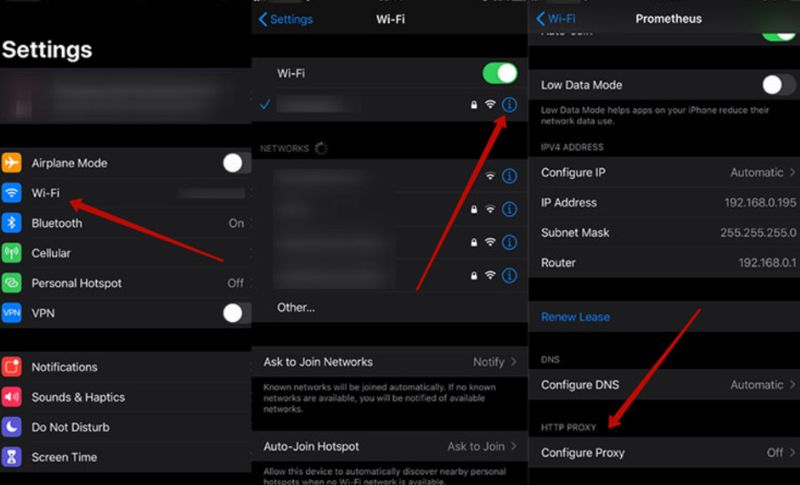
• On computers or browsers, use built-in settings or proxy extensions that allow for easy configuration.
While proxies are effective for IP spoofing, they don’t affect your GPS location, which is often accessed by mobile apps. For that, you’ll need a GPS-specific tool.
Aiseesoft AnyCoord Location Changer is quite different than proxies, which only mask your IP address. AnyCoord is a professional location spoofing tool that enables you to set or simulate your GPS location on your iPhone manually. It makes it especially helpful for apps that require your actual GPS location, such as dating apps, games like Pokémon GO, or location-based services.

Downloads
Aiseesoft AnyCoord Location Changer
100% Secure. No Ads.
100% Secure. No Ads.
How to Use Aiseesoft AnyCoord
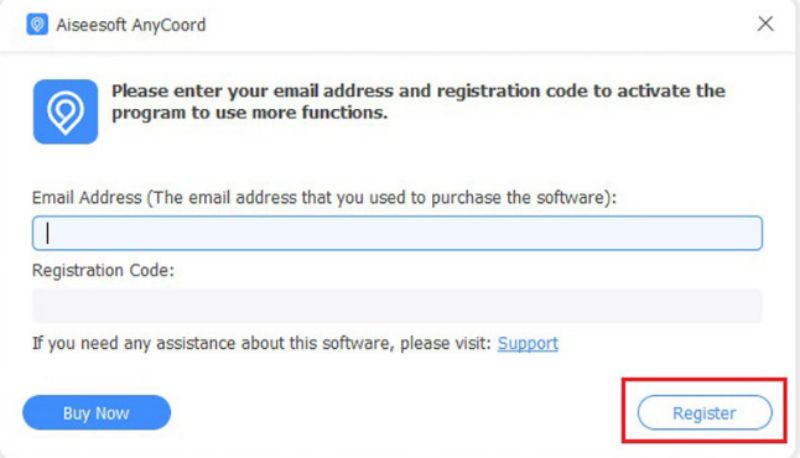
Note: A pop-up window will appear. Just follow the instructions to proceed.
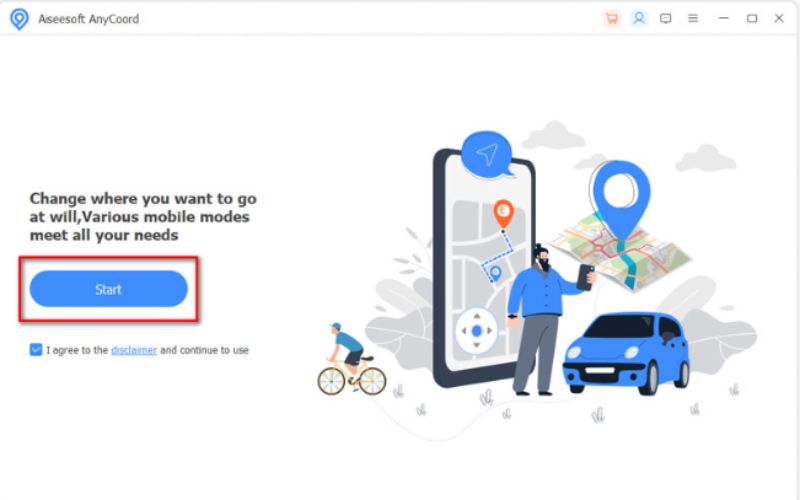
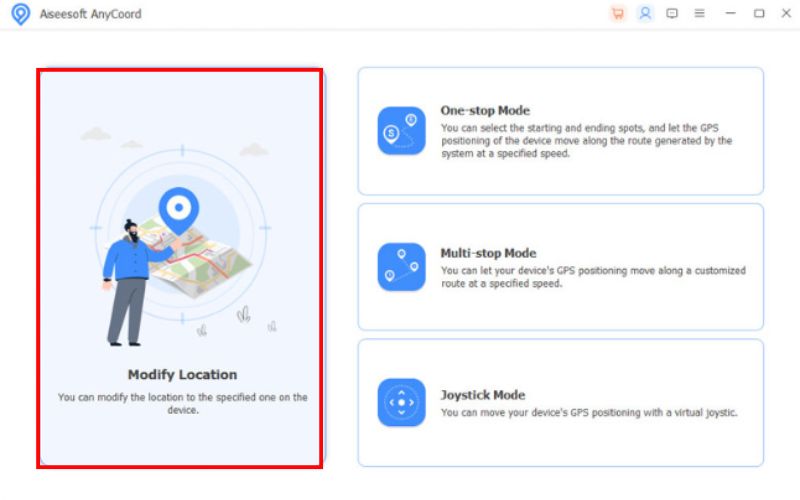
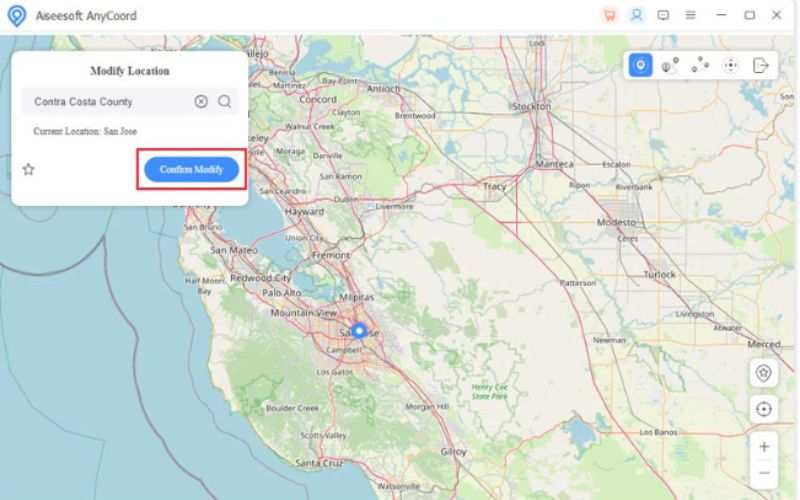
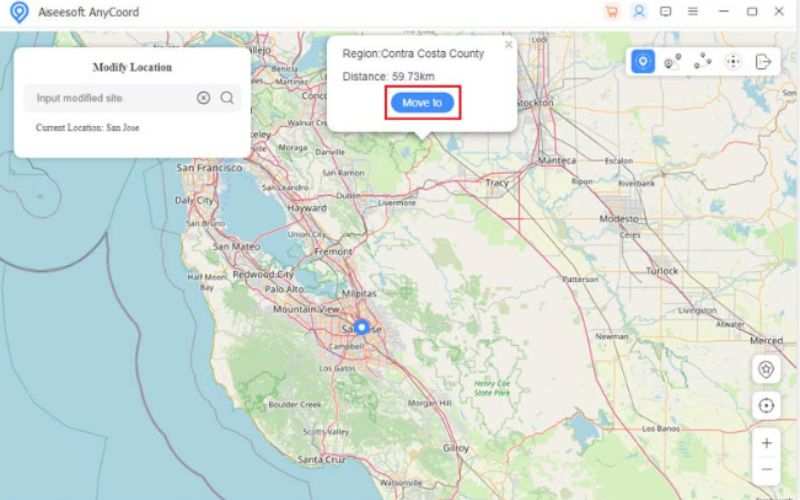
This method is safer than constantly switching IPs and is ideal when your main goal is to manipulate location-based features rather than internet region settings. Plus, it doesn't interfere with your browsing or network settings. For ultimate control over your digital footprint, combining GPS spoofing via Aiseesoft AnyCoord or other mock location apps with IP spoofing using proxies gives you maximum flexibility and security.
Can you get coordinates from the IP address?
You can determine an approximate GPS position from an IP address through geolocation lookups; however, the accuracy is typically at the city or regional level. You will only get estimates based on ISP and public databases (not GPS). GPS or device-based services will give you accurate location tracking.
Can I use an IP address to find GPS coordinates?
An IP address can provide a general location, typically within a city or region, but it does not give specific GPS coordinates. Specific GPS data is only available when the GPS hardware on the device is accessed.
Is GPS more accurate than IP tracking?
Indeed, GPS has a lot more accuracy. Although IP tracking can only provide approximate locations, it can pinpoint your location to within a few meters.
Conclusion
To properly understand and manage digital privacy, as well as to effectively track location, it is important to understand the differences between an IP address and a GPS location. The IP address and GPS can provide some rough indicator of the person's location (both have different purposes). An IP address can only indicate a network location, whereas a GPS coordinate indicates a physical location. In the section' IP address vs GPS location,' we discussed how GPS allows for a more precise pinpointing. Both can be used for spoofing purposes, such as for privacy or testing. Users can better manage their digital and physical identity by two methods. Users can change their IP address by using proxies and modify GPS data using Aiseesoft AnyCoord.

Aiseesoft AnyCoord can help you hide, fake, or change your GPS location to any other place with ease. You can even plan a moving route if needed.
100% Secure. No Ads.
100% Secure. No Ads.